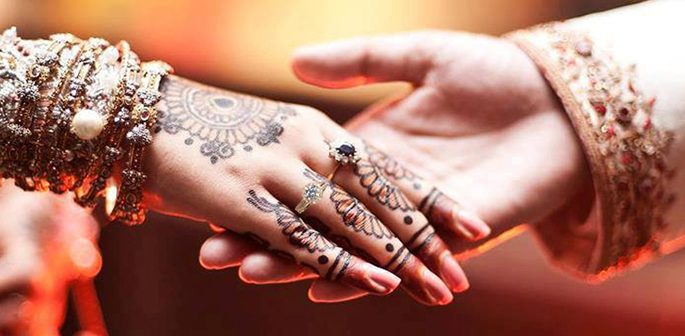The Supreme Court has held that the law doesn’t sanction the idea that a woman’s religion is merged with that of her husband’s after entering an inter-religion marriage.
A Constitution Bench led by Chief Justice Dipak Misra was addressing a legal issue involving a Parsi woman losing her religious identity after her marriage to a man from another religion.
The case is being heard before a five judge bench comprising Justices A M Khanwilkar, A K Sikri, Ashok Bhushan and D Y Chandrachud, apart from the CJI.
Paris Woman Petitioner Challenging Customary Laws
Filed by Goolrokh M Gupta a Parsi woman who married a Hindu, the plea challenges a customary law of the Parsi religion where a woman marrying a Hindu loses her religious rights available to her in the community and because of which she can’t visit the ‘Tower of Silence’ in case of her father’s death to perform the last rites.
The bench noted that there was no law that stated that a women “loses her religious identity” on marrying a man of another faith. It further stated that the Special Marriage Act allowed two persons to “maintain their respective religious identities” after marriage.
The bench has asked the advocate representing the ‘Valsad Parsi Trust’, Gopal Subramanium to take instructions and inform the court as to whether Gupta can attend the last rites of her parents.
Customary Laws Must Be Constitutionally Valid
Appearing for the woman Senior advocate Indira Jaising cited the Common Law doctrine regarding the merger of religion which holds that a woman’s religion automatically merges with the husband’s faith.
She asked if the Common law doctrine can be adopted in India when it is not being followed in the country of its origin. Jaising pointed out that even if the doctrine of merger permitted the customary rules to prevail, the customs need to pass the constitutionality test and further no custom must be allow to violate the fundamental rights of a citizen .
The bench observed that a man who marries outside his community is allowed to retain his religious identity, and asked how it was possible that a woman wasn’t allowed to do so.
The bench has held that only the woman had the right to decide regarding her religious identity by exercising her “right to choice”.
High Court Upheld Religion’s Customs
The case was referred to a five-judge constitution bench by the apex court in October to decide on the legal question of whether a Parsi woman loses her religious identity after marrying a man of different religion.
The SC bench was hearing a petition filed by Gupta that challenged the lower court judgement that a Parsi woman is said to have converted to Hinduism on marrying a Hindu man.
In her plea the woman noted that she had married a Hindu under the Special Marriage Act which should allow her to retain her right within the Parsi community. She also sought the right to visit the ‘Tower of Silence’ in event of her father’s death for the last rites. The Tower is place that acts as the funerary site for followers of the Zoroastrian faith.
The High Court found that she is deemed to have taken the religious status of her husband unless a declaration is made in a court for continuation of her Parsi status.
According to her woman, she had the right to all privileges under the Parsi religion since she had continued to practice the Zoroastrian religion even after marriage.
She has contended that her rights cannot be denied simply on the grounds that she was married to a non-Parsi man. She further pointed out that a male Parsi Zoroastrian retained rights available to him as a born Parsi, even if he marries a non-Parsi woman.





